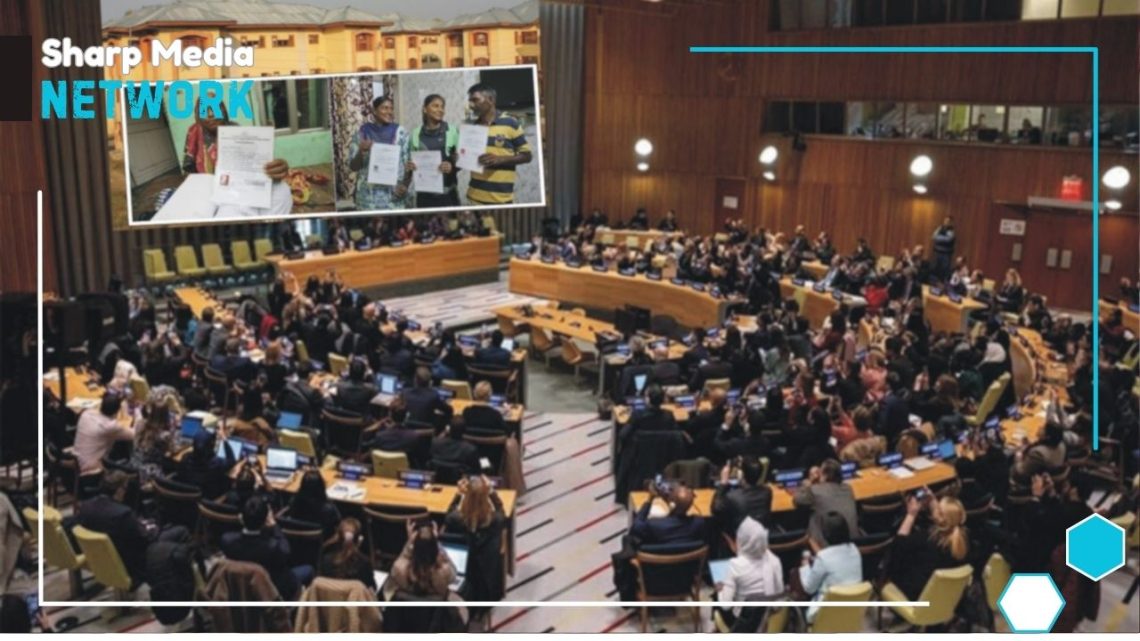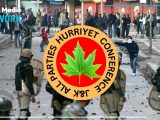
India’s Demographic Manipulation in IIOJK: A Threat to Muslim Identity and Self-Determination
January 19, 2025In Indian Illegally Occupied Jammu and Kashmir (IIOJK), the Muslim majority faces an existential threat as India’s policies increasingly target the region’s demographic composition, with critics drawing parallels to Israel’s settler-colonial tactics in Palestine.
In Indian Illegally Occupied Jammu and Kashmir (IIOJK), the Muslim-majority population faces an alarming threat to its identity and future. Under the Prime Minister Narendra Modi, India’s policies have taken a drastic turn, with deliberate actions designed to alter the demographic balance of the region. These policies, including the controversial domicile law, are seen by many as part of a broader agenda to undermine IIOJK’s Muslim identity and weaken the people’s right to self-determination.
One of the most significant and contentious actions taken by the Indian government is the implementation of laws and policies that encourage the settlement of non-Kashmiri Hindus in IIOJK. Critics argue that these measures are not only an effort to shift the region’s demographics but are also designed to erode the Muslim-majority status that has defined the territory for centuries. This demographic manipulation, they argue, mirrors Israel’s settler-colonial tactics in Palestine, with the primary aim being to dilute the cultural and religious identity of the native Muslim population.
At the heart of this strategy is the controversial domicile law, which grants permanent residency to non-Kashmiris, allowing them to buy land, settle, and gain access to local jobs. This move has been seen as an attempt to significantly alter the region’s demographic composition and, by extension, its political future. The law has sparked widespread protests and criticism, as Kashmiris fear that their rights to self-determination will be compromised as the demographic balance tilts in favor of outsiders.
The revocation of Article 370 in August 2019, which had provided IIOJK with special autonomy, further accelerated the process of demographic engineering. By removing the legal framework that restricted non-Kashmiris from settling in the region, India opened the door for large-scale migration into IIOJK. With the introduction of the domicile law, this influx is no longer just a possibility—it has become a tangible reality.
Critics argue that these changes are intended to prevent the region from ever achieving its rightful political status. The fear is that as non-Kashmiri populations increase, the local Muslim majority will be gradually overwhelmed, making a future plebiscite to determine the political fate of Kashmir more difficult to implement. This concern is rooted in the belief that demographic changes could undermine IIOJK’s aspirations for independence or a peaceful resolution of the dispute.
The international community has expressed growing concern over India’s actions in IIOJK, particularly regarding the alteration of the region’s demographic composition. These actions are seen as violations of international law and United Nations resolutions that recognize Kashmiris’ right to self-determination. The United Nations has long called for a plebiscite in Kashmir, allowing the people of the region to choose their future. However, the demographic manipulation being carried out by India is viewed as a deliberate attempt to preclude such a process.
Human rights organizations and international observers have condemned India’s policies, warning that the demographic changes threaten to destabilize the entire South Asian region. The increasing militarization of the region, along with India’s disregard for international laws, has fueled tensions and heightened the potential for conflict.
Despite the challenges posed by these policies, the people of IIOJK remain resolute in their resistance to India’s occupation and demographic manipulation. For many Kashmiris, the preservation of their culture, identity, and political rights remains paramount. Protests and acts of civil disobedience continue as the population seeks to safeguard its heritage and fight for the right to self-determination.
In light of these developments, global observers are calling for urgent intervention from the United Nations and major powers to stop India’s demographic manipulation before it causes irreversible changes to the region’s identity and stability. The fear is that if the situation is not addressed, the consequences for Kashmir, and for South Asia as a whole, could be disastrous.
India’s policies in IIOJK are increasingly seen as a direct attempt to alter the region’s demographic composition and eliminate its Muslim-majority status. The controversial domicile law and the revocation of Article 370 are key components of this effort, which critics argue is designed to undermine Kashmir’s right to self-determination. As the situation continues to escalate, the international community must act to prevent further demographic manipulation and support Kashmiris in their struggle for freedom and identity.

